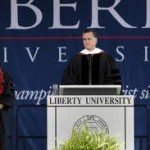It was a wild Fourth of July night in Ashland, Ohio. We headed over to friends for the prime location on their front porch to watch the community fireworks display. A planned 21 minute presentation was crammed into 7 minutes because of the thunderstorms that quickly moved in. So, there we were, cozy on the front porch watching a full blown fireworks display in almost 1/3 of the time allotted while the lightening and thunder competed for sound effects and “oohs and aahs.” Both displays elicited awesome responses from us for different reasons. The fireworks for their variety of color, and the human controls behind their design and release into the air. The lightening and thunder for their unpredictability and random appearances at various places in the sky above us, and for reminding us that it is the Lord who ultimately controls the winds and the waves.
I was taken back to an age-old theological debate about creation and our human role in it as I watched both displays and as I am now reading a book by James Peterson, Changing Human Nature: Ecology, Ethics, Genes, and God (Eerdmans, 2010). Questions such as these arise: what role did/does God give to humans in ordering and furthering the processes of creation? Are there limits to our role, in that the fundamental boundary between Creator and what is created needs to be maintained? Given there are limits (in my view), what are these and what moral norms are established to maintain them? What can we do? What ought we to do? What ought we not to do?
I agree with Peterson’s central claim in his book, that God’s creation remains open, dynamic and changing as opposed to static and fixed. Peterson is not concerned to make an argument in support of open-theism based on our purportedness to actually know God’s mind. Instead, Peterson invites us to think more deeply about technology as a human creation, particularly biomedical technology, and its possibilities for curing disease and enhancing human well-being, welcoming and begetting children, and attending to the present while thinking about future possibilities.
In a static creation, we have to spend lots of time and energy defending “what is” as “what should be.” Various illnesses and debilitating conditions are as they should be in a static creation. Suffering is justified for the redemptive ends it produces. However, in a more dynamic and forward moving creation toward God’s desired ends for all creation, we need to say that many forms of suffering are unjustifiable and instead exist because we have done little to alleviate or ameliorate them. Illnesses can be cured (and we especially hope so for ours and our loved ones) even as we wait for the full redemption and resurrection of our bodies. God invites us to use human freedom in appropriate ways to further God’s ends for the good and well-being of all creation. Does this run the risk of competing with God for control and glory? Perhaps. But maybe it is an invitation to cooperate with God in a side-by-side relationship and community that may elicit “oohs” and “aahs” from observers who benefit from this cooperation.












